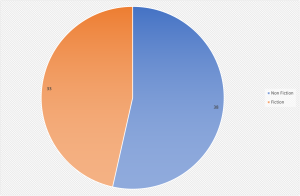Last week, the Brazilian architect Oscar Niemeyer died at the age of 104. That is a pretty good run by any standard, and in addition to his longevity Niemeyer was an important exponent of a less puritanical version of modern architecture. At the same time, the city of Brasilia, whose public buildings he designed, is often described as one of the biggest failures of utopian urban planning. The news of his death led me, somewhat indirectly, to a couple of articles about modern architecture:
Article/Slideshow: “Brasília And Chandigarh: Symbols Of Modernist Hope And Failure” by Belinda Lanks (images by Iwan Baan)
This piece discusses both Brasilia and the Indian city of Chandigarh, designed, like Brasilia, as a new capital city, by Le Corbusier— an architect who often stands (as in James C. Scott’s Seeing Like a State) for a whole school of thought in urban planning which is now very much out of favor. Lanks is actually reviewing a new book about the two cities by the photographer Iwan Baan, which illustrates some of the ways that people actually use the spaces of these cities, generally in defiance of the aims of their planners.
Article: “The Ugly-Beauty of Brutalism” by Anthony Paletta
When people claim to despise “modern architecture,” probably Brutalism is what they are thinking of: big (often very big), blocky buildings, made of poured, steel-reinforced concrete, the raw surface of which is left exposed and unadorned— including, sometimes, marks from the structures that held it as it was poured. I spend my days surrounded by Brutalist buildings; I am sitting in one as I type this:
As all of these articles point out, at the moment many Brutalist buildings are threatened with demolition, and in general there is not a whole lot of sympathy for them. I can certainly understand that, on one level; these are not structures that inspire affection, exactly, and some— like the one I work in, thanks to Walter Netsch’s Field Theory— are extremely confusing. But, as the authors here also note, it is also hard to describe many Brutalist buildings as uninteresting, while the proposals for replacing them are often exactly that. At any time, actually getting anything bold or unusual built is an uphill battle for an architect; our tendency is always to default to the familiar. With that in mind, we should perhaps think twice about obliterating those instances at which somebody did manage to bring to fruition a more unusual or challenging idea. I’m not in favor of preservation purely for its own sake, and if buildings are no longer functional or, especially, no longer safe, then we should think about replacing them. But the demolition of Brutalist works is often justified in purely subjective aesthetic terms, and I am not sure that is the best standard for making such a decision.
Here are a couple of other things I found interesting in the last week:
Article: New World Order: Is the UN About to Take Control of the Internet?” by Adi Robertson
There’s been a lot of buzz about the ongoing meeting of the International Telecommunications Union and the possibility that the United Nations will “take control” of the internet. To some extent, the concern surrounding this meeting misunderstands what the UN is and what it can do— the UN does not have the power to unilaterally “take over” anything, and any change who regulates what with regard to the internet would have to be agreed on by the individual member states. At the same time, some of the proposals being discussed are pretty troubling, including some clearly intended to give authoritarian governments more ability to block access to things they do not want their citizens to see. Robertson does a pretty good job of laying out what is at stake without being alarmist.
Article: “Today’s Assignment” by Louis Menand
Apparently, the President of France wants to ban homework, at least for younger children. I am kind of in favor of this, but at the same time his reason for wanting to do so strikes me as a particularly stupid one: wealthier parents are better able to help their children with their homework, and so those children have an advantage in school over poor children. That is a problem, to be sure, but if the homework being assigned is useful for learning it strikes me as absurd to get rid of it because some people will get more out of it than others, whatever the reason for that difference (and if it is not useful for learning, then we should do away with it for that reason alone). The interesting point that Menand makes here, though, is that this proposal reflects the fact that our views about homework have more to do with what we think school is supposed to do than about homework itself, and different societies have very different ideas about what school is for.
And, finally, it is end-of-the-year-list season. I know some people get annoyed with this stuff, but I really enjoy it. I see the lists as an opportunity to both catch up on what I missed through the year and to reflect on what happened over the year as a whole. Sure, the calendar year is a somewhat arbitrary unit for doing that, but it seems useful to me mentally to make such divisions. I will be doing some of my own lists soon, but until then, here are a couple that I have enjoyed recently:
List: “2012: The Year in Photos”
Just what it sounds like: a selection of some of the best, most striking, most moving, and most important images of the year. I might still have to go with the bear on the trampoline as my personal favorite, but there is some amazing work here.
List: “A Year in Reading” by The Millions
There will be lots and lots of lists of the books of the year, etc., but I like The Millions’ approach for a couple of reasons. First, these lists are limited to books published this year; instead, they ask all kinds of interesting people to talk about what they read over the course of the year, and what from among that material really stuck with them. Second, I like it because the page linked to here evolves rapidly over the last few weeks of the year; not infrequently, I’ll finish with one entry and go back to the main page to find that others have been added while I was reading. I have not read every entry here, and I probably won’t, but I find it fascinating to see how people for whom reading is an important part of what they do find their way to the things they read.



